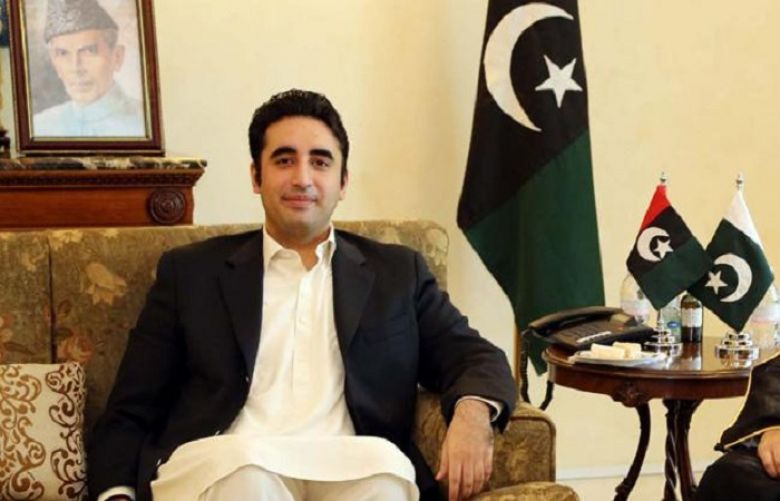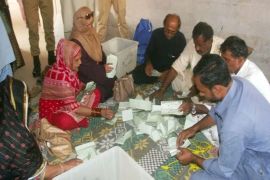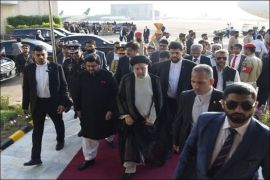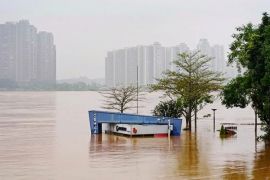Pakistan Peoples Party chairman Bilawal Bhutto Zardari on Wednesday said that the PML-N has been responsible for making the recently conducted census controversial.
"The census was made controversial by the PML-N due to the manner they conducted the census in," said the PPP scion. He added that the census was conducted in a non-transpirational manner and the ruling party has not taken any steps to address the reservations raised by the political parties.
"Our stance is the same as it was before the Council of Common Interests (CCI) meeting. We had asked for the rechecking of one percent blocks in the Senate from the provisional census," added Bilawal.
"The rechecking has not been done yet."
The PPP chairman said the reservations of the party were raised in the CCI meeting and till now the PPP is satisfied with the discussion held in the said meeting.
"If they do not do it, we will again raise the issue after the elections."
He added that the general elections scheduled for 2018 will not be delayed and will be held on time.
The PPP chairman also spoke in regards to deposed prime minister Nawaz Sharif and said if one sees Nawaz's historical past, he has been involved in every conspiracy against democracy.
"Both of PPP's former prime ministers have had their names on the Exit Control List (ECL) and have faced NAB cases."
PPP's chairman said that the law should be the same for everyone and there should be "no difference in the cases of PPP, PTI and PML-N".
Referring to the ongoing NAB case against Sharjeel Memon, he said the way the case is being conducted is discrimination.
Bilawal, condemning the recent disappearance of the deputy secretary general of the Majlis-e-Wahdat-e-Muslimeen (MWM), demanded the Punjab government to produce him before the court as he was picked the by province's police.
PPP leader said such 'kidnappings' should not take place as no one knows the whereabouts of the missing party leader.
"There should be rule of law in Punjab too."
Earlier, the Sindh government had rejected the provisional results of the sixth population census by terming the results as a conspiracy against the province by the federal government.
Speaking over the issue, Chief Sindh Minister Murad Ali Shah had said that it is very much clear that the people of Sindh have reservations against the census results; the statistics department should share the details of blocks with the Sindh government so that it can be counter-checked.
He said that the Sindh government would like to see the next elections based on the provincial results of the census, and for it, amendments need to be done in the Constitution.
The federal government had rejected the reservations raised by Sindh's political parties and said the process of conducting the census was transparent.
It added that all provinces had monitoring committees which were briefed on a regular basis while the census was being conducted.
The government further said that additional time was given to address all reservations and complaints.
Results released for the citywide population in the provisional census conducted by the Pakistan Bureau of Statistics show that Karachi’s population has ballooned to 14.9 million people in 2017 as compared to 9.39 million in 1998.
Thirty-three percent of Sindh’s 47.9 million-strong population lives in the province’s two major cities, Karachi and Hyderabad.
While the provincial capital’s population grew by 59pc in nineteen years, Hyderabad’s population only grew by 0.6 million during the same time.
The sixth Housing and Population Census began after a period of 19 years on March 15. The census was conducted in 16 districts of Punjab, eight districts of Sindh, 14 districts of Khyber Pakhtunkhwa, 15 districts of Balochistan, five districts of Azad Jammu and Kashmir and five districts of Gilgit-Baltistan.







